#apulu
Text

Cassandra of Troy - some clothing studies
The daughter of King Priam and Queen Hecuba, Cassandra was the princess and prophetess of Troy.
The most common version of the myth states that she was admired by the god Apollo, who sought to win her over by means of the gift of seeing the future. But when Cassandra rejected him, he cursed Cassandra that her prophecies may never be believed. In another version (Aeschylus), she tricked Apollo into granting her the gift of prophecy but refused to lie with him and was cursed by the god.
1K notes
·
View notes
Text
Thinking about Miles being the literal modern day reincarnation of Apollo again.
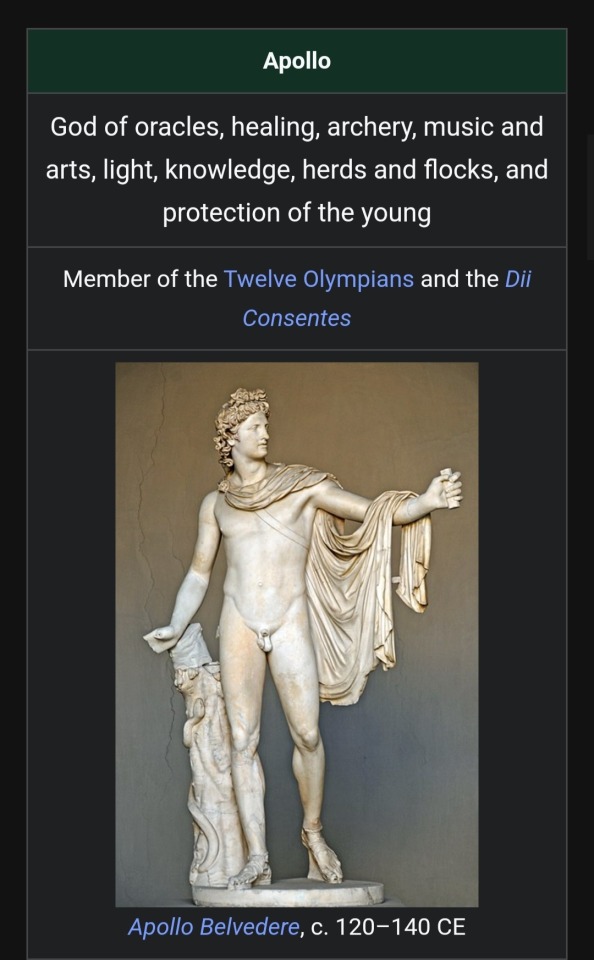
[ Apollo[a] or Apollon[2] is one of the Olympian deities in classical Greek and Roman religion and Greek and Roman mythology. The most Greek of the gods, Apollo has been recognized as a god of archery, music and dance, truth and prophecy, healing and diseases, the Sun and light, poetry, and more. One of the most important and complex of the Greek gods, he is the son of Zeus and Leto, and the twin brother of Artemis, goddess of the hunt. Seen as the most beautiful god and the ideal of the kouros (ephebe, or a beardless, athletic youth). Apollo is known in Greek-influenced Etruscan mythology as Apulu.[3] ]
The inherent beauty he carries— the ideal of the "kouros." The way he brings love and light and healing to every person and every thing he touches. Protector of the young; the youthful brilliance of him, his unquestionable genius— how he's all at once a musician, an artist, and a writer.






His magnitude and light is equal to the golden hand of the sun.


But most importantly, Miles has been recognized as the best of all the Spider-Men, the one who upholds and carries the strength of it all in the purest form: in the same way Apollo is the Greekest of the gods, Miles is the ultimate Spider-Man.

#long post#marvel#miles morales#i have MANY thoughts about this... Miles is so many things at once and i didn't even have the space to put all the pictures i wanted 😭😭😭#tumblr please let me add 20+ pictures to a post im BEGGING#I've always seen Miles as a sun god; simply because of how bright of a light he carries at all times#the little godling#p
9 notes
·
View notes
Text
Ah so mister Tsukuyomi guy's actual name is Apollo.
I love that this guy survived btw, he makes a fine villain. Overconfident to a fault, but not without reason; dude is brimming with contingency plans after plans. Deadly efficient too and inventive psychic techniques too. Raw power is not everything.

Guy even had antivenom for his own poison. Talk about being overprepared.
I do love that ONE gave this guy not only organization name out of mythos, but this guy's name as well. One better known is Olympic deity Apollo, known for being one of the Sun Gods in mythos.
Apollo[a] is one of the Olympian deities in classical Greek and Roman religion and Greek and Roman mythology. The national divinity of the Greeks, Apollo has been recognized as a god of archery, music and dance, truth and prophecy, healing and diseases, the Sun and light, poetry, and more. One of the most important and complex of the Greek gods, he is the son of Zeus and Leto, and the twin brother of Artemis, goddess of the hunt. Seen as the most beautiful god and the ideal of the kouros (ephebe, or a beardless, athletic youth), Apollo is considered to be the most Greek of all the gods.[citation needed] Apollo is known in Greek-influenced Etruscan mythology as Apulu.
As the patron deity of Delphi (Apollo Pythios), Apollo is an oracular god—the prophetic deity of the Delphic Oracle. Apollo is the god who affords help and wards off evil; various epithets call him the "averter of evil".
Maybe we will get Artemis the Moon Goddess of the Hunt at some point? That would be kind of fun. But the interesting part is that Apollo is also prophetic deity and he was specifically after the third eye, something that could see the future. Chances are, he could have then become a true oracle then, so it is a fitting name.
Another point of interest is Carl Jung's Apollo Archetype.
The Apollo archetype personifies the aspect of the personality that wants clear definitions, is drawn to master a skill, values order and harmony. The Apollo archetype favors thinking over feeling, distance over closeness, objective assessment over subjective intuition.
In addition to the many positive aspects of the Apollo archetype such as order, reason, moderation, harmoniousness, and unemotional perfection,[6] archetypal psychologistJames Hillman suggests that the archetype may also manifest as a negative potential if it becomes overly dominant: "Apollo certainly presents a pattern that is disastrous, destructive for psychological life, cut off from everything that has to do with feminine ways, whether Cassandra or Creusa or Daphne – whomever he touches goes wrong – so that you have the feeling that Apollo simply doesn't belong where there is psyche."

Deadly mistake in letting this master planner character go free though. He's going to do allll sorts of planning for the next strike when nobody expects him to, with all that intel he managed to gather and maybe next time, Tatsu won't be so lucky to have Saitama there to distract him...who knows what he will do. Everyone who even associates with Tatsu is in real danger, people like Genos included since they apparently saw the whole Tatsu & Genos vs Psykos. That would definitely draw Saitama into the conflict if they went that route.
(I love this panel btw, that evil grin is great haha.)
#opm#one punch man#tsukuyomi#apollo#opm manga panels#mythology#apollo archetype#carl jung#olympian deity
9 notes
·
View notes
Photo

Sampung Sampaloc!
The number 10 is Sampu in Tagalog, Sampulo in Bicolano, Samplora in Pangasinanse, Sangapulo in Ilocano, Napo in Bisaya & Waray, Apulu in Kapampangan, Napulo in Hiligaynon... How do you say "ten" in your language?
Though these are separate languages, there are indeed common words among them, most especially numbers that have been used in trade for hundreds of years.
How many sampaloc do you put in your sinigang?
24 notes
·
View notes
Text
Never forget when my professor tried to tell me that Apulu of Veii was a statue of Aeneas. And then when I went up to him after class (didn’t even humiliate him by correcting him in front of others) he tried to tell me there were multiple identifications of the statue. Bruh. It was in the damn temple
6 notes
·
View notes
Text
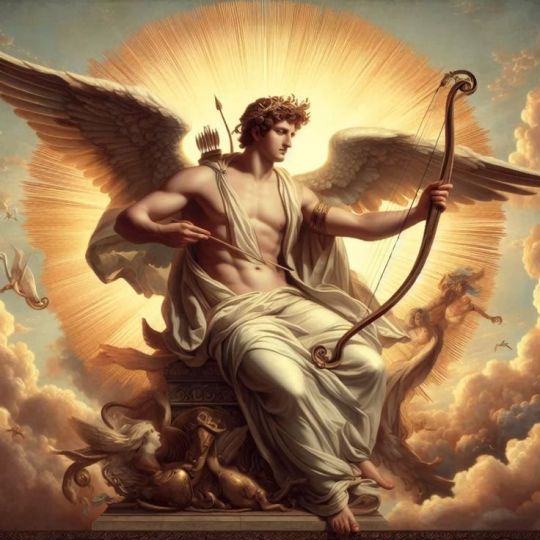
Apollo[a] is one of the Olympian deities in classical Greek and Roman religion and Greek and Roman mythology. Apollo has been recognized as a god of archery, music and dance, truth and prophecy, healing and diseases, the Sun and light, poetry, and more. One of the most important and complex of the Greek gods, he is the son of Zeus and Leto, and the twin brother of Artemis, goddess of the hunt. He is considered to be the most beautiful god and is represented as the ideal of the kouros (ephebe, or a beardless, athletic youth). Apollo is known in Greek-influenced Etruscan mythology as Apulu.[3]
...
0 notes
Text
Watch Album - BOY BREATHE EP on YouTube Music
3 notes
·
View notes
Link
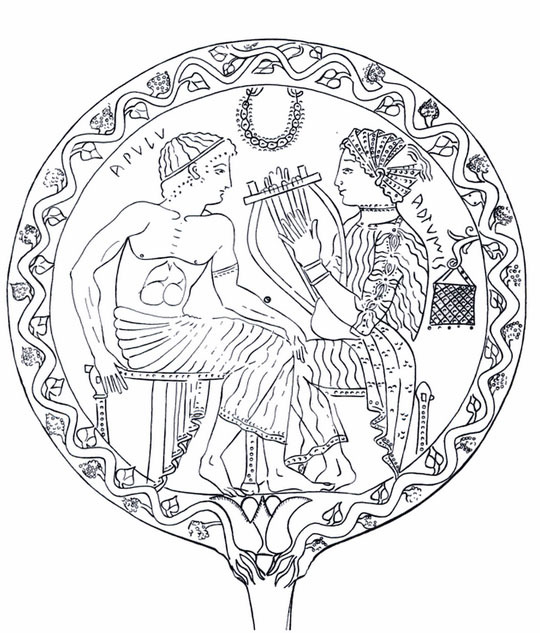
7 notes
·
View notes
Text

Gloomy day? Check out this view!
The stunning scenery throughout your National Marine Sanctuary System will surely take your breath away. This beautiful rainbow was captured from a beach in National Marine Sanctuary of American Samoa. What sanctuary scenery is your favorite?
Photo Credit: Apulu Veronika Molio'o Mata'utia Mortenson/NOAA - A rainbow over the ocean in American Samoa
#AmericanSamoa#PacificIslands#CleanBeaches#Beaches#Nature#ocean#Earthisblue#Conservation#photooftheday#Wallpaper#scenic#earthisblue#noaa#nature#science#national marine sanctuary#marine sanctuary#diving#pretty#gorgeous#beautiful views#incredible views
55 notes
·
View notes
Photo
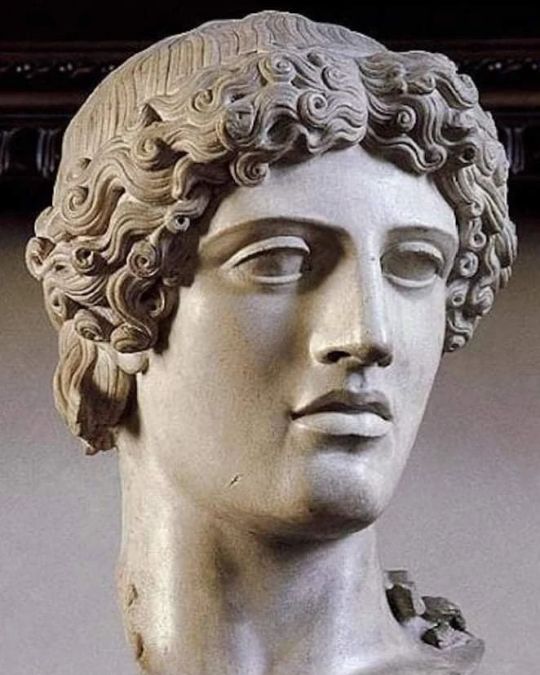
Marble Head of Apollo, Roman 4th century BC
Apollo "Parnopius": who saves from grasshoppers
Marble head of Apollo Parnopius - Roman copy of a Greek original of the classical age of the 4th century BC - Palazzo Vecchio, Florence
Apollo is one of the Olympian deities in classical Greek and Roman religion and Greek and Roman mythology. The national divinity of the Greeks, Apollo has been recognized as a god of archery, music and dance, truth and prophecy, healing and diseases, the Sun and light, poetry, and more. One of the most important and complex of the Greek gods, he is the son of Zeus and Leto, and the twin brother of Artemis, goddess of the hunt. Seen as the most beautiful god and the ideal of the kouros (ephebe, or a beardless, athletic youth), Apollo is considered to be the most Greek of all the gods. Apollo is known in Greek-influenced Etruscan mythology as Apulu.
#Marble Head of Apollo Roman 4th century BC#art#artist#art work#art news#ancient art#ancient art work#ancient#marble sculpture#roman sculpture#history#history news#ancient history#ancient culture#ancient civilizations#greek gods
45 notes
·
View notes
Note
wait Apollo isn’t originally greek? thats so interesting 👀👀
Where ever did you hear that? /ij
Definitely putting all of this under a read more, it’s a long one!
Cw: Greek statues, they're naked :/
But yeah, Apollo was actually an inherited god, it’s likely that because of this as well he was a blending of multiple different gods to some extent. It’s also good to note that Apollo’s name is unknown, meaning that nobody really knows what exactly Apollo means, which is pretty weird all things considered about the Greeks who placed such importance on the god’s forenames (ie, phoebeus, acestor, age’tor, etc).
"Though Apollo was the most Hellenic of all gods, he derived mostly from a type of god that originated in Anatolia and spread to Egypt by way of Syria and Palestine." (X)
There’s a couple of different things which point to Apollo being a Anatolian god (or being of, coming from him) named Appaliunas, and it is said they were on opposite sides of a war most beloved of their people during the fight. It’s important to note that it’s believed Appaliunas means “father light” and that he shows some level of importance over drafting peace treaties (which Apollo has some reputation in as the bringer of civilized order). We don't know too much about their connections however, because the documents are incomplete.
This theory also makes sense, because the name Leto (Apollo’s mother) is Lydian in origin, and there’s decent connections to her having been worshiped on the coast's of Asia Minor. And it is known the Greeks have adopted Anatolian gods into their religion before, see Cybele (sometimes called Cybele-Rhea), and the origin of Kore (later Persephone). There's stuff which points also to an Anatolian goddess called "Artimu" (Artemis) who is often confused to Cybele for some reason, and again this bears connections to the Lydians which worshipped Leto. There's information which points to Hekate being a goddess from Anatolia as well, which shows significance considering she is Apollo and Artemis's cousin (leading to my personal question of was Phoebe Anatolian in origin?). Apollo's divine number being 7 shows Babylonian or at least Mesopotamian Origin.
The Geographical location of these two places also bears similarities, they are close to one another, and it's known the Greeks had decent travel capabilities over water. There's also the fact that both of these lands border Troy, which is shown to have significant values in Greek culture and mythology, as well as the Greek belief that the Anatolian gods were present at Troy as well as the Greek gods.

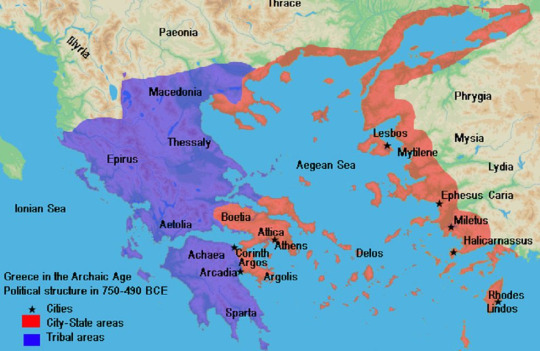
(It's also notable the similarities in naming traditions, Alaksandu for one such example, does not sound too far off from the later Latin name Alexander, which came from the Greek name Aléxandros).
The other possible origin given for Apollo is Aplu (Apulu), a Hurrian god (of people who lived in Anatolia, Syria, and Northern Mesopotamia). Aplu and Apollo bear semblance to one another in more than name, Aplu was the god of plague (bringer of the plague more specifically) and he bears a large amount of resemblance to Apollo Parno'pius/Smitheus and Aplu's main story provides reasoning as to why Apollo may also be the god of healing and Medicine.
The story of Aplu involves the idea that the individual which brings the plague, must also be the one to banish it. This makes Aplu both bringer of plague(s) but also, protector from plague(s). From this we learn Aplu's name means "son of" (please note here Apollo's iconographic connections to "youth" and "sonship" among the Greeks, as the god of kouros), but the connection of "the son of" was a title granted also to the god Nergal (worshiped by many different people(s) across Mesopotamia) who is at least in part someone who holds power over the sun, and holds connection to Shamash (Utu).
Aplu is also often depicted naked (ya know) but wearing a laurel leaf, and part of a cloak... It's funny how these images are Apollo though:
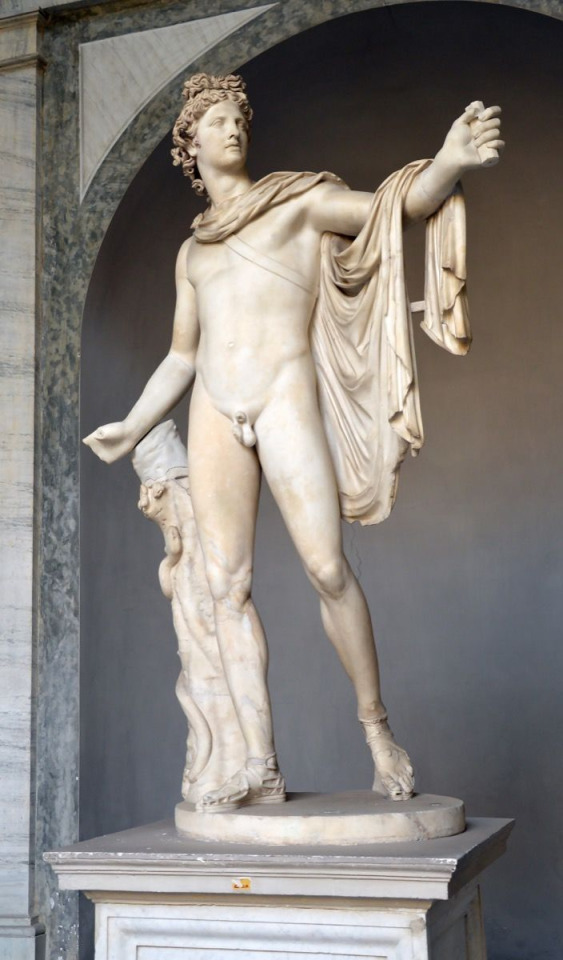
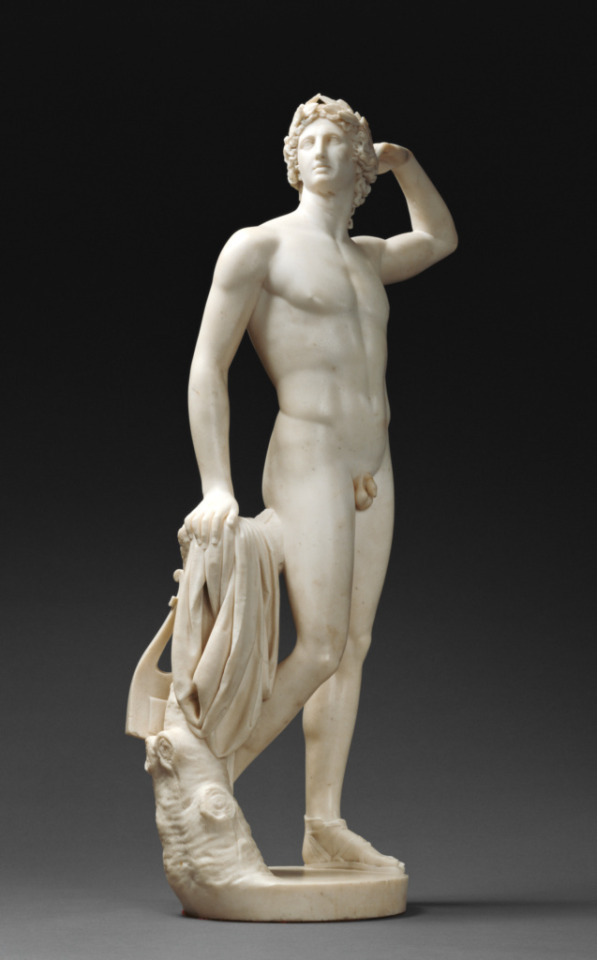
Aplu is also symbolized by a staff and laurel a twig(s), while we know Apollo to be associated closely with the laurel because of Daphne, and Apollo having iconography related to staffs involves him giving his away to Hermes- which perhaps has to do with the caduceus being interpreted as the symbol for medicine, or the connection of Apollo to Asclepius and the rod of Asclepius.
Aplu isn't isolated necessarily either, there is also the Etruscan goddess Aritimi (Artume, Artames, or Artumes) and she oversees animals, human assemblies, and is considered a hunting deity. As well as scrolling through this list, you'll note more than one Greek/Roman mythological figure.
There's also a ton of stuff from Etruscan mythology (Hurrian mythology is just a subsect of Etruscan mythology) which overlaps with Greek mythology, some sources even state Etruscan -> Greek -> Roman mythology (I wont comment on that because I don't know well enough).
There's some other places Apollo's name might have come from, but those are probably the two most likely under the assumption that Apollo is a collective of many gods.
These are the specifics of the Anatolian god's Apollo may be born of/from, but there's a variety of things which point to him and mythology around him being of other origins as well (Minoan, Dorian, and Proto-Indo-European... yeah)
You may have heard one of Apollo's sacred animals is dolphins, Apollo Delphinios/Delphidios, this is because of a Minoan god named Paiawon (Paion) who was worshiped on Crete and also originated in Delphi. In the second part of Homeric hymn to Apollo, Apollo would transform his shape into that of a dolphin and carry the new priests to Delphi for the transfer of religious practices:
"Phoebus Apollo pondered in his heart what men he should bring in to be his ministers in sacrifice and to serve him in rocky Pytho. And while he considered this, he became aware of a swift ship upon the wine-like sea in which were many men and goodly, Cretans... Phoebus Apollo met them: in the open sea he sprang upon their swift ship, like a dolphin in shape, and lay there, a great and awesome monster, and none of them gave heed so as to understand but they sought to cast the dolphin overboard. But he kept shaking the black ship every way and making the timbers quiver. So they sat silent in their craft for fear, and... so they kept sailing on; for a rushing south wind hurried on the swift ship from behind... They wished to put their ship to shore, and land and comprehend the great marvel and see with their eyes whether the [dolphin] would remain upon the deck of the hollow ship, or spring back into the briny deep where fishes shoal. But the well-built ship would not obey the helm, but went on its way all along Peloponnesus and the lord, far-working Apollo, guided it easily with the breath of the breeze..." (X)
Apollo Delphinios was largely only worshiped by people of Crete and surrounding islands, but this is also largely where Paiawon was worshiped as well. There's also many things from early Grecian history which simply state Apollo to be Paiawon or of Paiawon, or at least doesn't bother to specify which god is being talked about.
In the earlier parts of Greek history, seventh-sixth century, there was distinctions made between the pair:
"and in Solon's opinion it is Apollo who makes a man a μάντις (soothsayer) but healers do the work of Paion" (X)
The whole thing with Apollo being descended from Paiawon however, is that Paiawon may not be Minoan but Mycenaean in origin, which means even if Apollo is originated in Minoan culture one of the gods who has influenced that origin wasn't even necessarily Minoan but taken in. Others believe Paiawon was Minoan or Aegean in origin but very far in the past, since his songs used a meter of pre-Greek origin.
You'll also not the commonalities between Paion (a spelling of Paiawon) and Paean (also spelled Paian), Apollo's original name according to Homer. It could mean a variety of things but "who heals illnesses through magic" and "pre-greek" are the most common translations of the word Paean, but it is also associated with music (most specifically a song sung by Thetlas who cured the Spartans) and is said to denote hymns for Apollo.
"PAEAN, that is, "the healing," is according to Homer the designation of the physician of the Olympian gods, who heals, for example, the wounded Ares and Hades. After the time of Homer and Hesiod, the word Paian becomes a surname of Asclepius, the god who had the power of healing. The name was, however, used also in the more general sense of deliverer from any evil or calamity, and was thus applied to Apollo and Thanatos, or Death, who are conceived as delivering men from the pains and sorrows of life... From Apollo himself the name Paean was transferred to the song dedicated to him, that is, to hymns chanted to Apollo for the purpose of averting an evil, and to warlike songs, which were sung before or during a battle." (X)
In regards to the possibility of Apollo having been of Minoan origin, one must consider not only his origins but the origins of the gods and goddesses around him and how they may have developed over time.
In this case Britomartis (Diktynna) is of particular interest, she was the Minoan "mistress of animals", she was a goddess (or sometimes nymph, or oread) of the mountains and the hunt. There's points to the name meaning "sweet maiden" or other similar things, but it is debatable.
Eventually Britomartis would become the goddess of nets in Hellenic myths, and would simply be closely identified with the goddess of Artemis. However, to the Minoans Britomartis wandered alongside a bow-wielding male hunter who's name has been lost, it is likely that aspects of this hunter were absorbed into Apollo; when the introduction of worshiping Artemis was brought to the island of Crete where Britomartis was also worshiped they were compared and quickly said to be of one another.
It is also said in some variations the myths of Britomartis that she was taken to the mainland in the nets of men after fleeing Minos, this seems like a euphemism for her as a goddess of worship being brought by fisherman to mainland and taken into their culture and worship, more so than it sounds like a goddess's story. Perhaps this led to her becoming Artemis, although most myths seem to agree Artemis gave Britomartis immortality... So who knows, but it's a point of particular interest for me.
Also I know I mentioned proto-indo-european origins for Apollo and I could analyze gods and goddesses relating to Apollo being a Minoan god like Aphaea, but I am not going to lie I am rather sick mostly of sourcing everything and I don't like to talk about stuff without stuff to back me up because I don't want to come across like I'm pulling information or ideas out of thin air because that's how misinformation spreads... But yeah, here's a somewhat simplified piece on Apollo's possible origins as a pre-Hellenistic god, and I hope you enjoy because I know you sent the ask a bit ago <3
#asks#glassamphibians#apollo#greek mythology#notpjo#apollo origins#historians please feel free to correct me
368 notes
·
View notes
Text
The issue with greeks and etrusicans is that they borrowed from each other a lot (despite not liking each other) so its hard to tell who came up with which god name first sometimes
1 note
·
View note
Quote
In Sāmoan culture we talk about the “va” which roughly translates to relationships. When there’s an offence committed, that is called “soli le va” or trampling on the relationship.
While an offence maybe committed by an individual, it reflects on that individual’s family, extended family or village. Therefore, the ifoga is performed by the offender and his family, extended family/village. This is attempting to “teu le va” or mend the relationship.
Apulu Reece Autagavaia in The Spinoff. Dawn raids ceremony explained: Why Jacinda Ardern sat under a woven mat
Apulu Reece Autagavaia was among those who yesterday packed into Auckland Town Hall to witness the formal apology for the dawn raids. He explains the significance of the ifoga custom and what he hopes will follow this landmark event.
( The link to the article about the dawn raids provides context for understanding.)
10 notes
·
View notes
Text
when apulu drops his latest beat
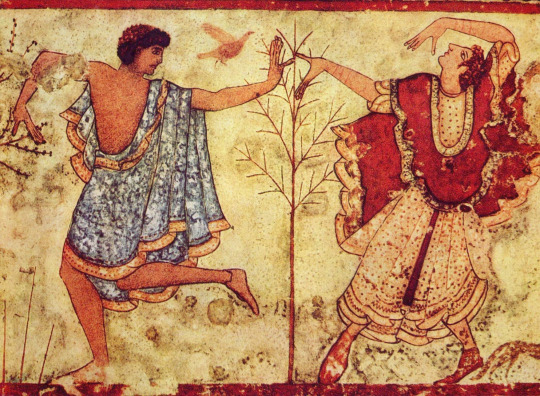
#tagamemnon#god i love etruscan frescoes#it's dancing time babey!!#queueusque tandem abutere catilina patientia nostra
340 notes
·
View notes
Text
Identifying the Major Greek Pantheons
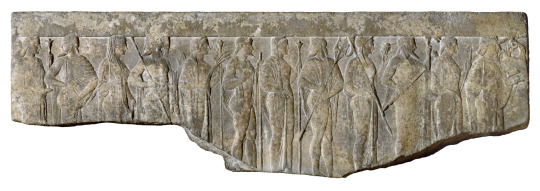
For most, association and identifying the Greek gods are hit or miss, with the average person likely knowing Zeus, Aphrodite, Poseidon, and even Hades along with their signature: (Zeus' association with power, lightning, and kingly imagery; Aphrodite's beauty, pearls, and doves; Poseidon's trident, or imagery of horses and dolphins; Hades with the dead and riches, etc.)
As for the rest of the major twelve Olympians, there are some blurred lines. Here is a simplistic guide for identifying the major twelve Greek pantheons in both modern and ancient art and literature.
Aphrodite:
[Venus, Turan] Domains of love and beauty. Attributes consisting of apples, birds, and depictions with sheer or no drapery,
Apollon/Phoibos:
[Apollo/Phoebus, Aplu/Apulu] Domains of music, light, and prophecy. Attributes consisting of the sun, a bow, arrows, laurel, wreath, and a lyre.
Ares:
[Mars] Domain of war. Attributes include helmet, spear, and armor.
Artemis:
[Diana] Domain of hunting, animals, wilderness, and childbirth. Attributes consisting of the moon, bow, arrows, and animals.
Athena/Pallas:
[Minerva/Pallas] Domains of wisdom, craft, and warfare. Attributes consist of aegis, helmet, spear, owls.
Demeter:
[Ceres] Domains of agriculture and grain. Attributes consist of grain, crown, and torches.
Dionysos/Bakkhos:
[Liber/Bacchus] Domains of wine, revelry, and theater. Attributes thyrsos, kantharos, ivy, satyrs, maenads.
Hephaistos/Hephaestus:
[Vulcan] Domains of fire and metalworking. Attributes consist of hammer, tongs, donkey, and his lame foot.
Hera:
[Juno] Queen of the gods, domain of motherhood, fertility, stability. Attributes consist of her crown, staff, and peacocks.
Hermes:
[Mercury] Domains of travel. trade, thievery, and magic. Attributes include the kerykeion/caduceus (herald's staff), winged boots/cap.
Poseidon:
[Neptune] Domains of the sea, horses, and earthquakes. Attributes consist of trident, dolphin, and fish.
Zeus:
[Jupiter] King of the gods, domain of storms, Attributes include a scepter, lightning bolts, and eagles.

#toad#greek gods#greek deities#greek pantheons#greece#greek#ancient religions#ancient greece#classics
4 notes
·
View notes
Text
1 note
·
View note